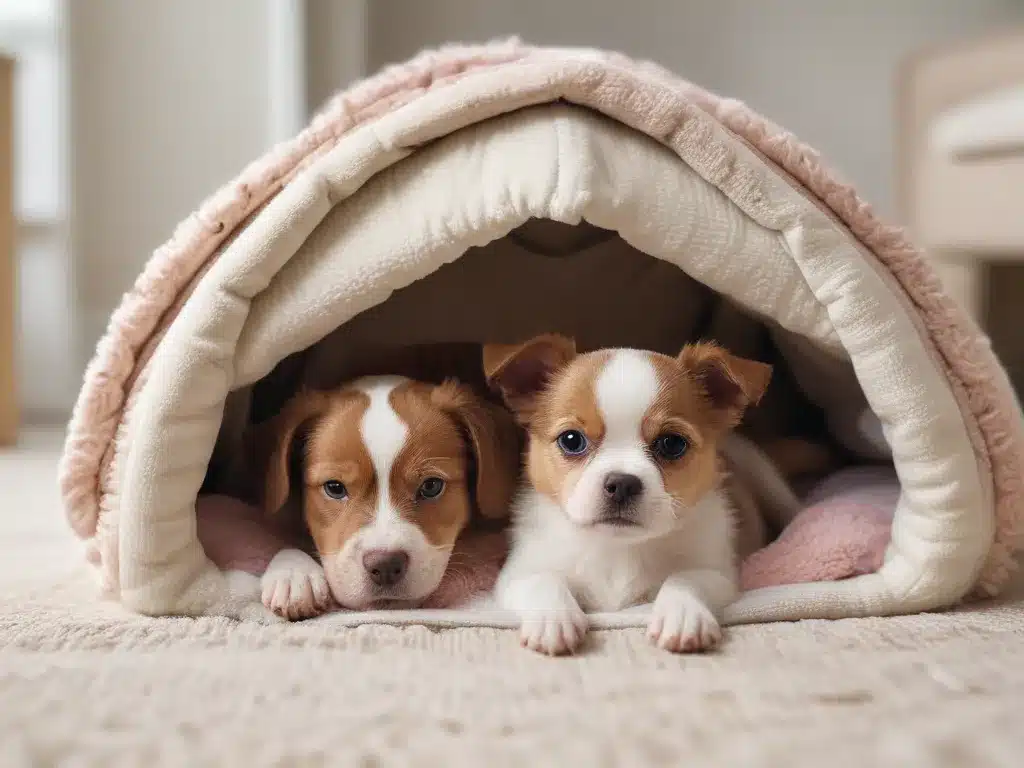Introduction
As a pet owner, I understand the challenges of keeping our homes fresh and odor-free, especially in rooms where our furry friends spend most of their time. Pets can leave behind a variety of unpleasant smells, from accidents on the carpet to that unmistakable “pet odor” that seems to linger no matter how much we clean. In this comprehensive guide, I’ll share my favorite tips and tricks for refreshing smells in rooms where pets sleep and play.
Understanding Pet Odors
Before we dive into the solutions, it’s essential to understand the sources of pet odors. The main culprits are:
-
Urine and feces: Accidents on the carpet, furniture, or floors can leave behind a strong, ammonia-like smell that can be difficult to remove.
-
Dander and fur: Pets shed dander (dead skin cells) and fur, which can accumulate and create a musty odor.
-
Saliva and drool: Many pets drool, leaving wet spots on surfaces that can develop an unpleasant smell over time.
-
Litter boxes: Litter boxes can be a breeding ground for odors if not cleaned regularly.
-
Wet dog smell: After a bath or walk in the rain, dogs can develop a distinct “wet dog” smell that can permeate the room.
Understanding the sources of these odors will help us target them more effectively.
Cleaning and Deodorizing
The first step in refreshing smells in pet-friendly rooms is thorough cleaning and deodorizing. Here are some effective methods:
Deep Carpet Cleaning
Carpets can act like a sponge, absorbing pet odors and making them difficult to remove. Regular deep cleaning with a carpet shampoo or steam cleaner can help eliminate these odors from the fibers. I recommend using an enzymatic cleaner specifically designed to break down pet odors and stains.
Upholstery and Fabric Cleaning
Pets often spend a lot of time on furniture, leaving behind odors and dander. Vacuuming upholstery regularly and using a fabric deodorizer or enzymatic cleaner can help keep these surfaces fresh.
Litter Box Maintenance
Litter boxes should be scooped daily and completely changed every one to two weeks. Using a litter box deodorizer and cleaning the box with an enzymatic cleaner can help control odors.
Hard Surface Cleaning
Pets can leave behind smells on hard surfaces like floors, walls, and baseboards. Cleaning these surfaces with a mixture of warm water and vinegar or an enzymatic cleaner can help neutralize odors.
Laundering Pet Bedding
Pet bedding can harbor odors from sweat, dander, and accidents. Washing bedding regularly in hot water with a pet-safe detergent and adding a bit of baking soda can help remove lingering smells.
Natural Deodorizers
In addition to cleaning, there are several natural deodorizers that can help refresh smells in pet-friendly rooms:
Baking Soda
Baking soda is a versatile and effective deodorizer. Sprinkle it on carpets, furniture, and pet bedding, let it sit for a few hours, and then vacuum it up. You can also place bowls of baking soda around the room to absorb odors.
Vinegar
Vinegar is a natural odor neutralizer and can be used to clean hard surfaces or added to laundry during the rinse cycle.
Essential Oils
Essential oils like lemon, eucalyptus, and lavender can help mask pet odors while providing a fresh, natural scent. Add a few drops to a diffuser or dilute with water in a spray bottle for a room freshener.
Activated Charcoal
Activated charcoal is highly porous and can absorb odors from the air. Place bowls of activated charcoal around the room or use charcoal bags designed for odor control.
Air Purification
In addition to cleaning and natural deodorizers, air purification can help remove pet odors and keep the air fresh:
HEPA Air Purifiers
High-Efficiency Particulate Air (HEPA) purifiers can capture pet dander, hair, and other allergens from the air, reducing odors and improving air quality.
Ultraviolet (UV) Air Purifiers
UV air purifiers use ultraviolet light to kill bacteria, viruses, and other microorganisms that can contribute to pet odors.
Ozone Generators
Ozone generators produce ozone, a powerful oxidizing agent that can neutralize odors. However, ozone should be used with caution and only when the room is unoccupied, as it can be harmful to humans and pets.
Routine Maintenance
Finally, maintaining a regular cleaning routine is essential for keeping pet odors at bay. Here are some tips:
- Vacuum and sweep floors regularly to remove hair, dander, and debris.
- Groom pets regularly to reduce shedding and dander.
- Bathe pets as needed to keep their coat fresh and clean.
- Use air purifiers and deodorizers consistently, rather than only when odors become noticeable.
- Address accidents promptly by cleaning and deodorizing the affected area.
By following these tips and staying vigilant with routine maintenance, you can keep your pet-friendly rooms smelling fresh and inviting for both you and your furry companions.







